Position paper: Mandatory sodium reduction targets for processed foods
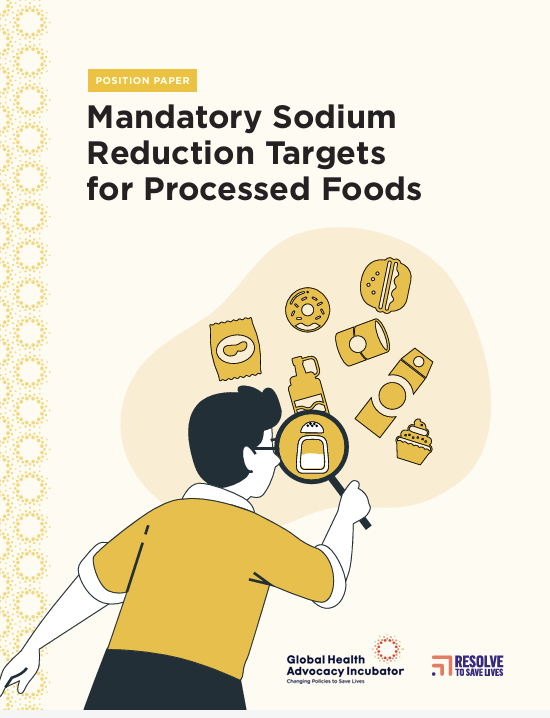
This position paper from Global Health Advocacy Incubator (GHAI) developed in partnership with Resolve to Save Lives, outlines the key steps needed to establish effective mandatory sodium reduction targets, informed by country experiences where these policies have been successfully implemented. It also offers clear, evidence-based recommendations to guide policymakers and advocates in shaping and advancing […]
Proven ways to address obesity, improve health, increase government revenue, and reduce health care costs
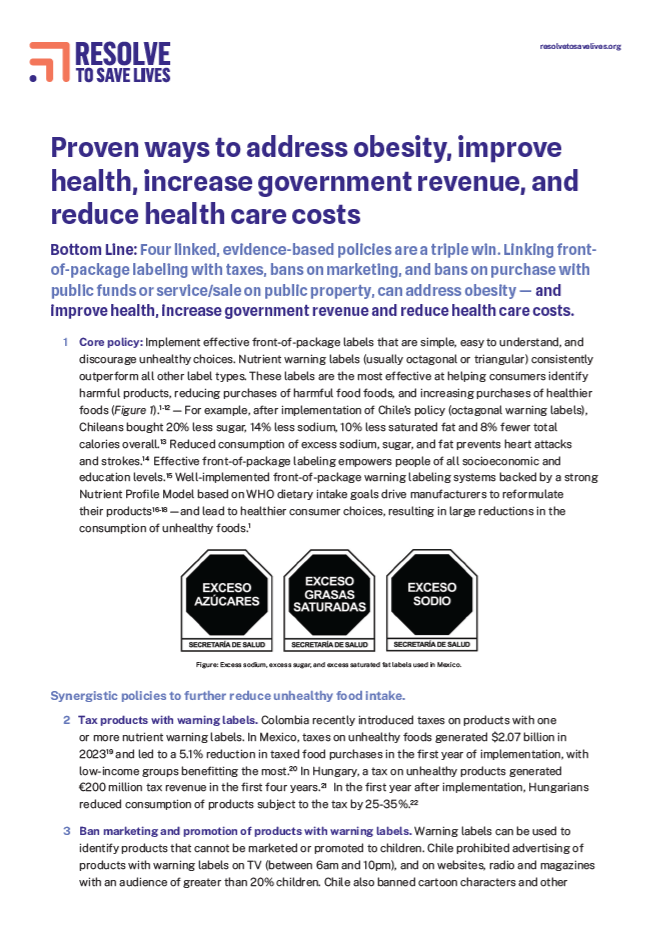
Linking front-of-package labeling with taxes, bans on marketing, and bans on purchase with public funds or service/sale on public property, can address obesity — and improve health, increase government revenue and reduce health care costs.
Front-of-package labeling systems
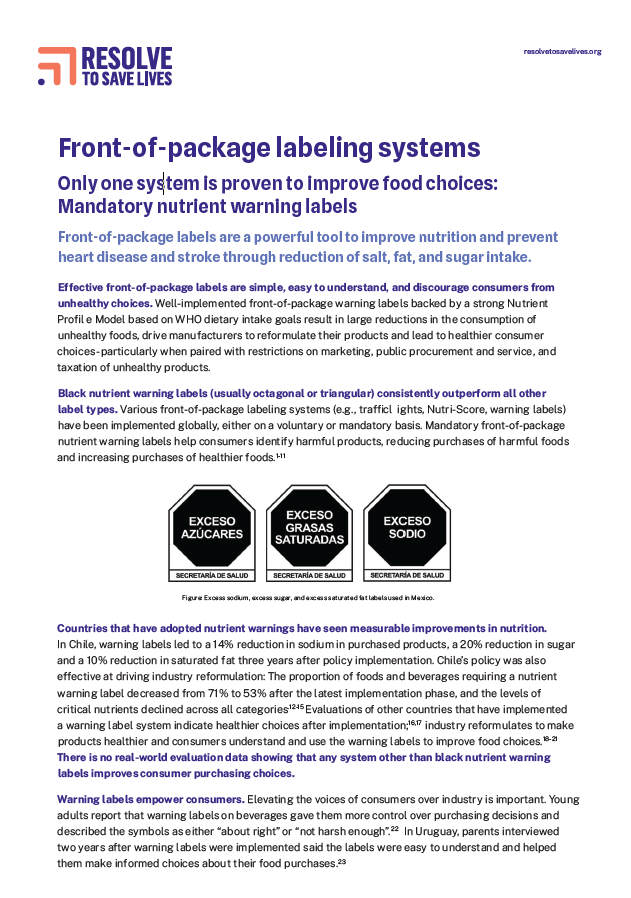
Front-of-package labels (FOPL) are a powerful tool to improve nutrition and prevent heart disease and stroke through reduction of salt, fat, and sugar intake. Only one system is proven to improve food choices: Mandatory nutrient warning labels.
Policy brief: Front-of-package warning labels give consumers the freedom to choose healthy

This policy brief developed by Global Health Advocacy Incubator and Resolve to Save Lives highlights the critical role of mandatory front-of-package warning labeling (FOPL or FOPWL) in combating diet-related noncommunicable diseases (NCDs) such as diabetes, cardiovascular diseases, and obesity and saving millions in health care costs. Warning labels empower consumers with easy-to-understand nutrition information to help […]
Using nutrient profile models to underpin key nutrition interventions
New RTSL guide explores how to use nutrient profile models to rank food based on nutritional composition and provide the scientific foundation for healthy and comprehensive nutrition policies.
New article in JAMA calls for less rhetoric and more action before, during, and after 2025 UN High-Level Meeting on noncommunicable diseases
In JAMA, Dr. Tom Frieden and colleagues call for focused strategy and more investment to address NCDs.
The George Institute for Global Health and Resolve to Save Lives welcome WHO’s recommendation to replace regular table salt with lower-sodium salt substitutes
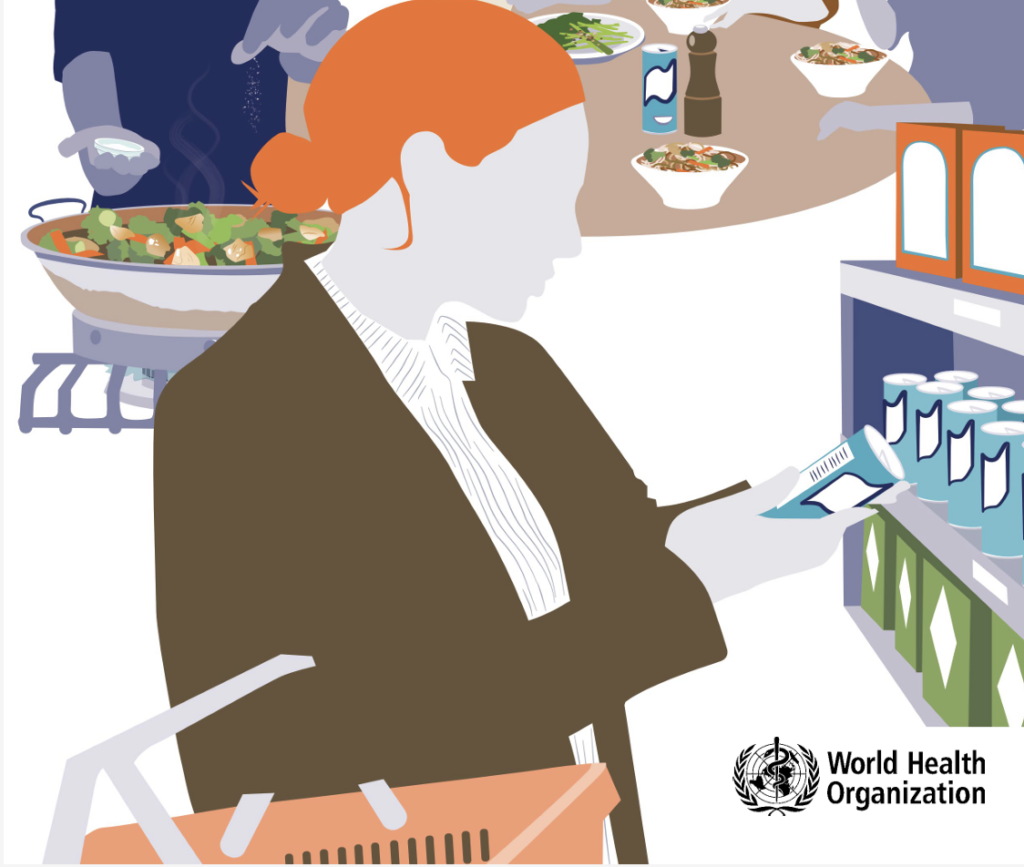
Resolve to Save Lives and The George Institute for Global Health strongly support WHO new recommendation to to replace regular table salt with lower-sodium salt substitutes.
User Guide for RTSL’s Global Nutrition Database

Detailed user guide to supplement use of Resolve to Save Lives’ Global Nutrition Database for Packaged Foods, an online, open access, centralized platform for category level packaged food data that policy advocates and decisionmakers can reference when developing food policies or tracking country progress.
For WSJ, our President and CEO Dr. Tom Frieden talks nutrition in the U.S. and beyond

What should the new U.S. administration do to change American diets for the better?
Meet GIFNA – WHO’s upgraded nutrition policy database
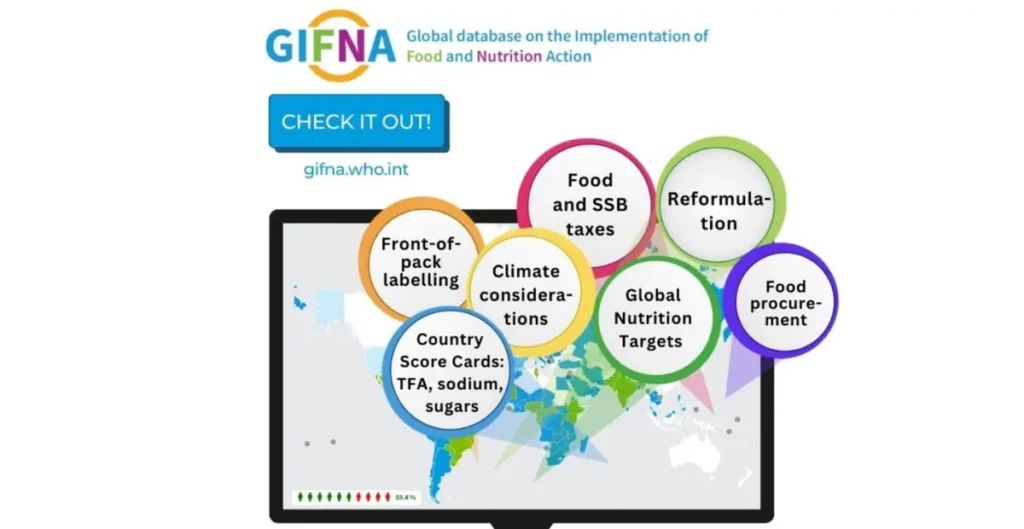
Nutrition policymakers and advocates can use WHO’s upgraded policy database to improve food environments for all.
Designing Front-of-Package Labels to Inform Consumers and Encourage Healthier Food Choices in Bangladesh: A Qualitative Study

This study, co-authored by the RTSL nutrition team, uses focus groups of consumers in Bangladesh to better understand purchasing decisions and effectiveness of nutrition labels. Chief food purchase concerns include that a food has sufficient beneficial nutrients, is free from germs or toxins, and does not contain high levels of nutrients of concern. Results suggest […]
Global overview of government-endorsed nutrition labeling policies of packaged foods: a document review

Clear and accurate nutrition labeling on food products is an important way for consumers to understand what’s in the foods they buy. This new comprehensive review in Frontiers led by partners at the National Heart Foundation of Bangladesh and co-authored by Resolve to Save Lives shows that governments are scaling up action to help consumers make informed food […]
FOPWL regulations around the globe
Overview of front-of-package warning labelling policies around the world developed by GHAI
Five countries commit to implementing comprehensive sodium reduction policies to improve health and save at least 39,000 lives per year
New commitments made at 77th World Health Assembly event hosted by Resolve to Save Lives and NCD Alliance 28 May 2024 (GENEVA, SWITZERLAND)—Bangladesh, Cameroon, Malaysia, Nigeria, and Singapore made new commitments today to implement comprehensive policies that will protect their populations from the harms of high-sodium diets. These commitments, made during the 77th World Health […]
Colombia leads on reducing salt-related diseases

Watch: How Colombia is tackling non-communicable diseases through policies that improve heart health by reducing salt intake.
New tool helps governments combat nutrients of concern

Watch a webinar exploring GHAI’s new Nutrient Profile Models tool for developing healthy food policies
Salt reduction gains momentum in Thailand
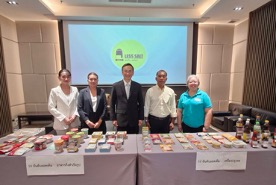
Partners in Thailand advocate for a focus on salt reduction in government policies.
Reducing cardiovascular disease through salt reduction
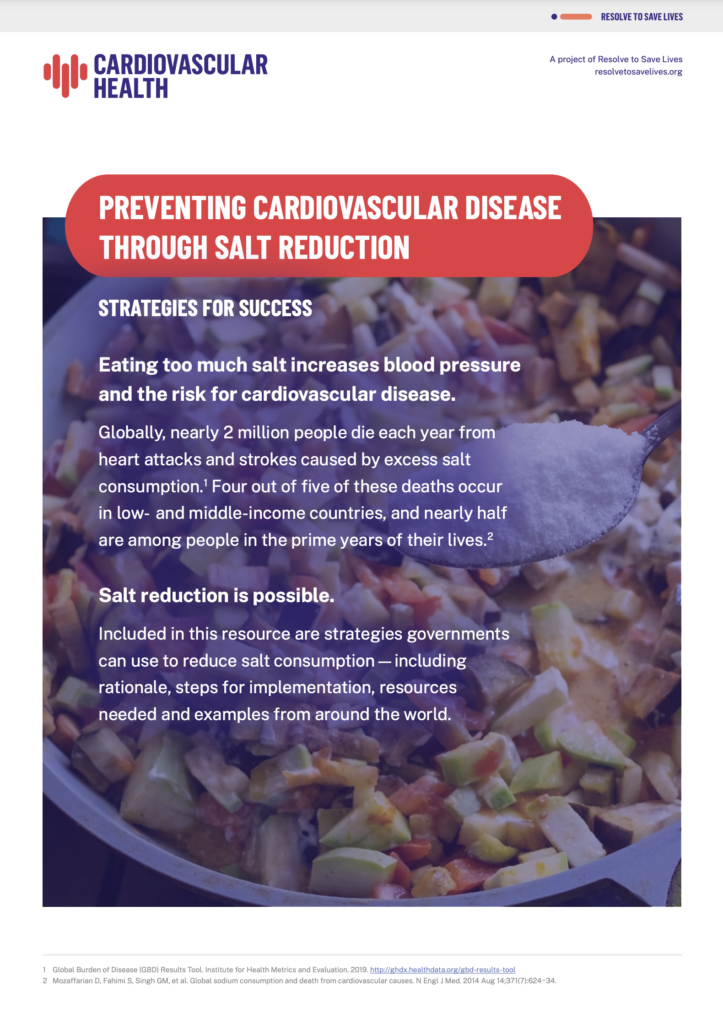
An overview of RTSL’s approach to sodium reduction, including summaries of key interventions (sodium targets, FOPL, marketing restrictions, food procurement and service, low-sodium salt, policy advocacy and communications)
Massive efforts needed to reduce salt intake and protect lives
“Countries must work urgently to implement ambitious, mandatory, government-led sodium reduction policies to meet the global target of reducing salt consumption by 2025,” said Dr Tom Frieden.
New Global Nutrition Database for Packaged Foods
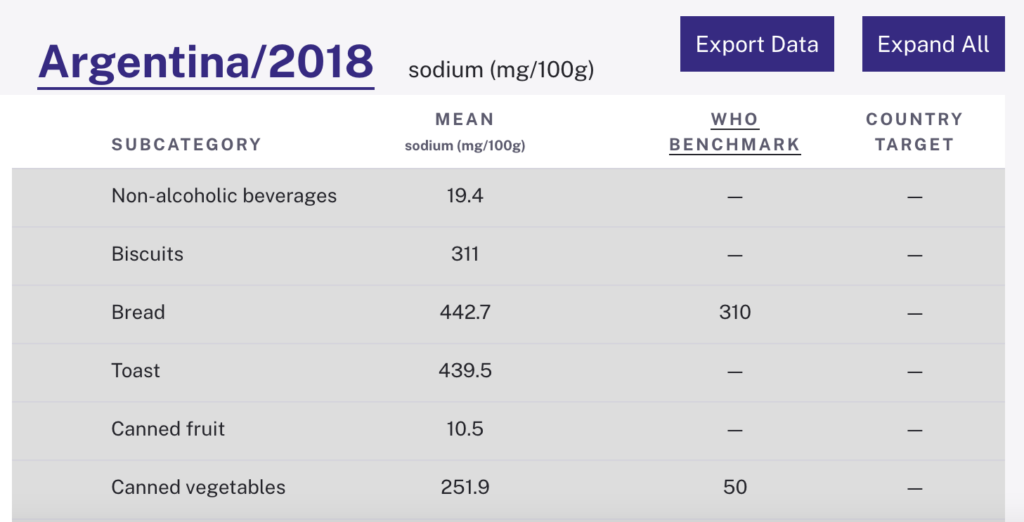
We welcome submissions of new data as we expand the database!
FDA’s 4-Year delay in finalizing sodium reduction targets may cause 265,000 deaths over 14 years, study says
New sodium targets could save over 400,000 lives and billions of dollars in the next decade